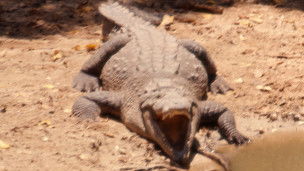
Can Male Mosquitoes Bite?
Have you ever wondered whether male mosquitoes can bite? This question often arises due to the common belief that only female mosquitoes are capable of biting. In this article, we will delve into the intricacies of mosquito behavior and provide you with a comprehensive understanding of whether male mosquitoes can bite.
Understanding the Difference Between Male and Female Mosquitoes

Mosquitoes belong to the family Culicidae and are known for their slender bodies, long legs, and distinctive wings. While both male and female mosquitoes have the potential to bite, their primary purpose differs. Female mosquitoes require blood meals to produce eggs, whereas male mosquitoes do not.
Why Do Female Mosquitoes Bite?

Female mosquitoes require blood meals to develop their eggs. The blood meal provides essential nutrients, such as proteins, that are crucial for the growth and development of mosquito larvae. Without a blood meal, female mosquitoes cannot reproduce effectively.
Can Male Mosquitoes Bite?

Contrary to popular belief, male mosquitoes can indeed bite. However, their bites are generally less noticeable and less likely to cause irritation compared to those of female mosquitoes. Here’s why:
-
Physical Differences: Male mosquitoes have smaller mouthparts compared to female mosquitoes. This makes it more challenging for them to pierce the skin and draw blood.
-
Behavioral Differences: Male mosquitoes are less likely to seek out blood meals. They primarily feed on nectar, plant juices, and other sweet substances. Female mosquitoes, on the other hand, are more attracted to hosts and are more likely to attempt a blood meal.
-
Reproductive Needs: Since male mosquitoes do not require blood meals to reproduce, they have less incentive to bite humans or animals.
Are Male Mosquito Bites Harmful?
While male mosquito bites can be harmful, they are generally less severe than those of female mosquitoes. Here are some reasons why male mosquito bites may be harmful:
-
Irritation: Male mosquito bites can cause mild irritation, redness, and itching. However, these symptoms are usually less intense compared to those caused by female mosquito bites.
-
Transmission of Diseases: Although male mosquitoes are less likely to transmit diseases, there have been rare cases where male mosquitoes have been found to carry pathogens. However, these cases are extremely rare.
How to Prevent Mosquito Bites
Whether you’re dealing with male or female mosquitoes, preventing bites is essential. Here are some effective strategies:
-
Use Insect Repellents: Apply insect repellents containing DEET, picaridin, or oil of lemon eucalyptus to exposed skin and clothing.
-
Wear Protective Clothing: When spending time outdoors, wear long-sleeved shirts, pants, and socks to minimize exposed skin.
-
Eliminate Standing Water: Mosquitoes breed in standing water. Regularly empty containers, buckets, and other items that collect water.
-
Use Mosquito Netting: Install mosquito netting over doors and windows to prevent mosquitoes from entering your home.
Conclusion
In conclusion, male mosquitoes can bite, but their bites are generally less noticeable and less likely to cause irritation compared to those of female mosquitoes. While male mosquito bites can be harmful, they are less severe and less likely to transmit diseases. By understanding the differences between male and female mosquitoes and implementing effective prevention strategies, you can reduce your risk of mosquito bites and the associated health risks.







